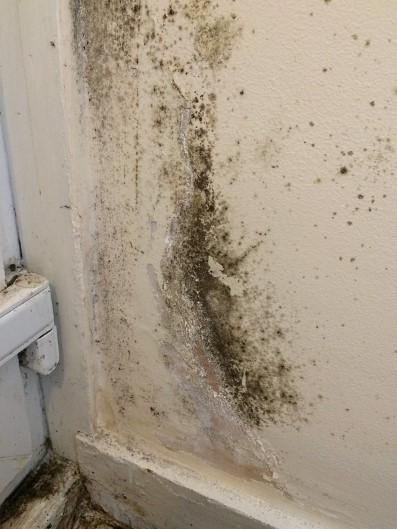Are you considering buying a house with known damp issues? If so, you should know that this can have an effect on your mortgage. Damp is one of the most common problems in houses and it can be caused by many factors. This article will explore what penetrating damp is, how to spot it, and whether or not it will affect your mortgage application!
Contents
Penetrating damp is a hidden problem that can cause mould and mildew to develop. It's an issue that many homeowners are not aware of until they start experiencing the symptoms, which include black spots on walls, high humidity levels in your home or condensation forming on windows and it is also not a great smell. The water vapor from penetrating damp enters through cracks in foundations made from porous materials like brick and mortar as well as gaps around pipes, cables and vents. If you notice any signs of penetration wetting then you should call out a professional to investigate it further!
The most obvious sign is mould and it's not always easy to see because mould likes dark corners with high humidity. You should also be aware that there may be visible wet patches, condensation on windows or even water droplets in your electricity socket which might mean a leaky roof. Another thing you can do is check out the wallpaper - if it peels off easily then this could signify that moisture has been coming through from behind for long enough. If all else fails, get an expert in!

Buying a house could be risky for your mortgage application but having damp doesn't mean you cannot buy a house. It's just a matter of finding the right mortgage company that will work with you to get your home loan approved and make sure it doesn't adversely affect their investment.
Well, if it gets worse over time (it will) some mortgage companies may deny your application because they don't want their investment being affected. Others may say it's not a problem.
Some mortgage companies have clauses that exclude dampness as an issue for them, so you would want to find out who they are and go with one of those.
So if your house has been suffering from penetrative damp then talk to the relevant people immediately about this - there is no point in waiting until after you've put down a deposit on the property only to realise afterwards that this clause doesn't apply and now your application won't be accepted! You will just have wasted both time and money.
The good news: many mortgage companies allow for moisture issues such as penetrative damp because they know how common these problems can be in England's climate!
Even if you're a professional with plenty of experience, it's hard to spot the signs of damp or moisture in your home until there is serious damage done. It is best to call out a damp proofing company who have all the right equipment and expertise to get rid of any bad leaks before they can cause major problems for your house.
There are many things that mortgage surveyors check when applying for mortgages such as credit scores, but one thing that isn't checked is whether or not buyers live near water sources which could lead to more penetrating damp forming around their homes - so that might mean an application will be denied from time-to-time.
Yes, if you have experienced any type of damp penetrating your home, it is important to get a professional opinion on the matter as soon as possible. This could be because you're living in an area near water sources which can lead to more penetrative damp forming around your property; or alternatively this may be due to bad plumbing systems within the house that need rectifying before they become worse and start causing health problems for residents - such as respiratory illnesses like asthma and bronchitis.
If there are obvious signs of moisture or wet spots inside of your home then call out professionals who know what they are doing so that you don't end up with expensive issues later down the line!
Central heating can help prevent damp too! Read our article: What's the Best Central Heating System for my Home?